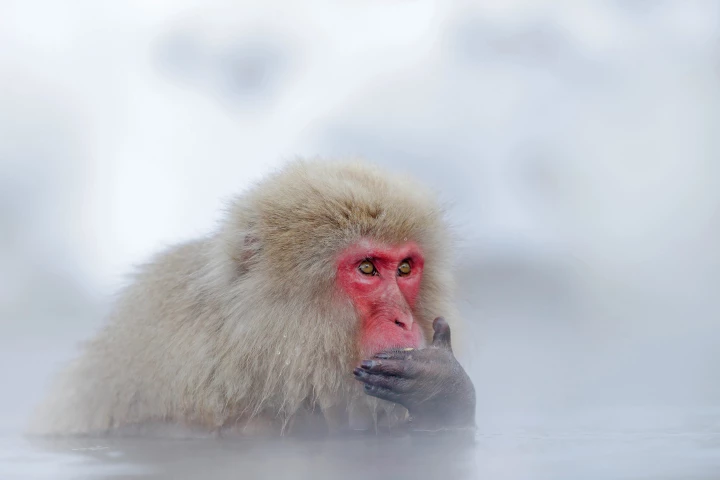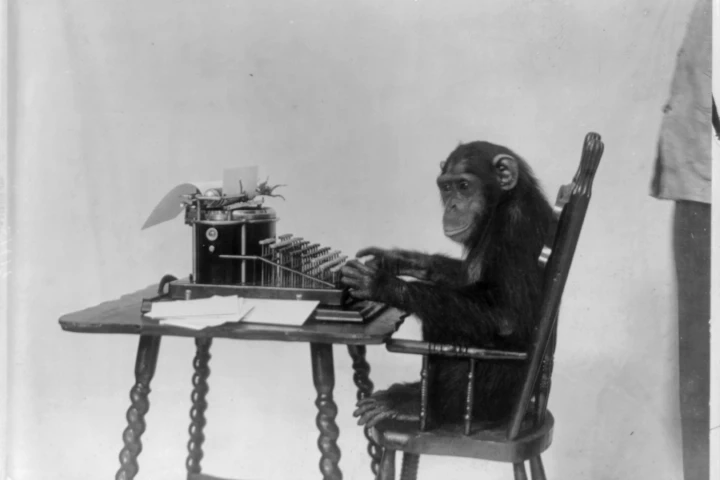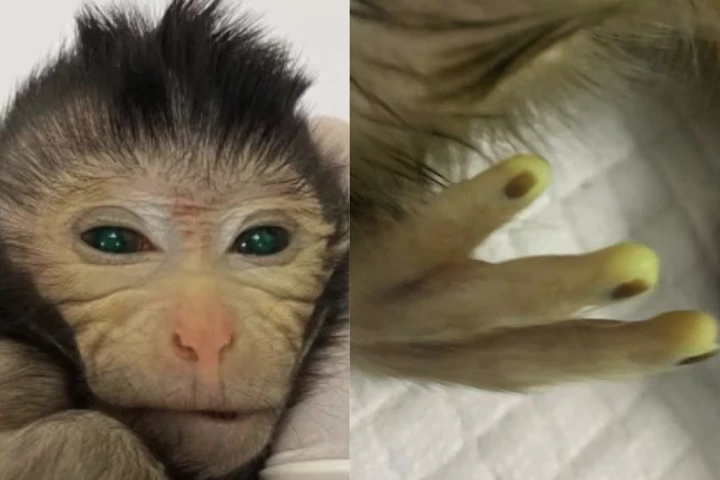Monkeys
-
A groundbreaking study has traced the 66-million-year history of primates to overturn conventional thought that our ancestors came from tropical forests. The earliest members of our family tree, scientists say, were actually cold-climate survivors.
-
Along with Schrödinger’s Cat, the Infinite Monkeys Theorem is one of the most famous thought experiments. A new study, with tongue firmly in cheek, has calculated that you might be waiting seven googol years for your Shakespeare.
-
Cells from two genetically distinct macaque embryos have been combined, resulting in the first chimeric primate live birth. The newborn male's green glow reveals how large a part the injected stem cells played in development, stunning scientists.
-
In a breakthrough new study, scientists have created human-monkey chimera embryos for the first time. They make for more accurate models of human biology and disease - but of course they also raise some complicated ethical concerns.
-
The brain is hard to treat – medications have side effects and surgery is dangerous and invasive. But now, researchers have shown how ultrasound can be used to affect specific regions of the brain, and even influence behavior in monkeys.
-
New research out of China has confirmed the birth of five-gene-edited monkey clones. Two recently published papers describe how a CRISPR-gene edited long-tailed macaque has been successfully cloned demonstrating the first time in the world a gene-edited monkey has been effectively cloned.
-
The mystery of a highly unusual Caribbean monkey has finally been solved. Xenothrix, a long-extinct primate, was so unlike any other living monkey that no one could agree what it was. Thanks to DNA analysis we now know that it is most closely related to South America's titi monkeys.
-
The brain is a complex tangle of neurons that allow us to process lots of different stimuli at once. A Duke University team has found evidence that individual neurons can process multiple signals simultaneously, by rapidly alternating between them.
-
In one of the first examples of gene-editing technology being effectively used to knock out the expression of a gene in non-human primates, researchers have lowered the blood cholesterol in monkeys by disabling a single gene in the liver.
-
A team of Chinese scientists has conducted the first full assessment of the effects of CRISPR on non-human primates. The study set out to study whether the CRISPR-Cas9 genome editing technique results in off-target mutations in rhesus macaque monkeys.
-
Since Dolly the sheep was cloned in 1996, scientists have used the same technique to clone mice, cows, and even dogs, but the process proved unsuccessful in primates - until now. A team of Chinese scientists has just announced the successful birth of two genetically identical long-tailed macaques.
-
In a particular patch of Brazilian forest, the trademark sound of howler monkeys has been replaced by an eerie silence as the creatures fall prey to an outbreak of yellow fever. While tragic, one researcher says the event could offer valuable insight into simian ecology.
Load More











